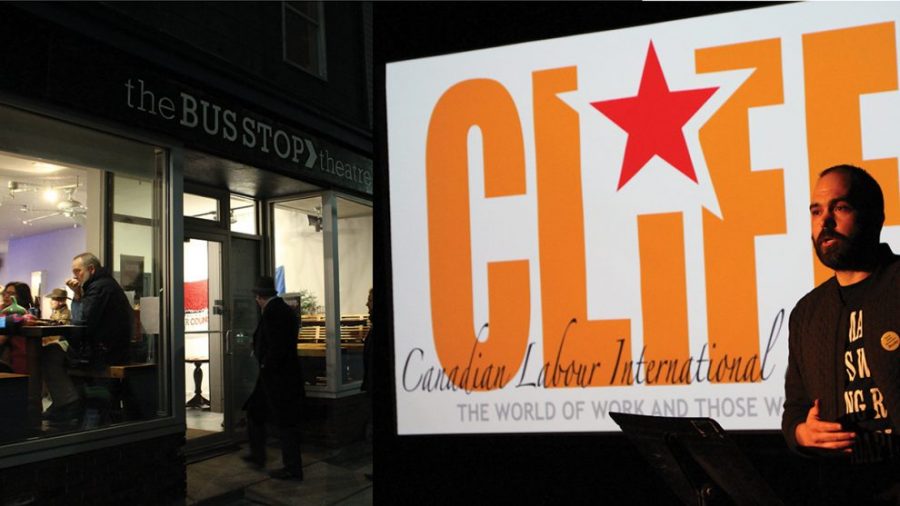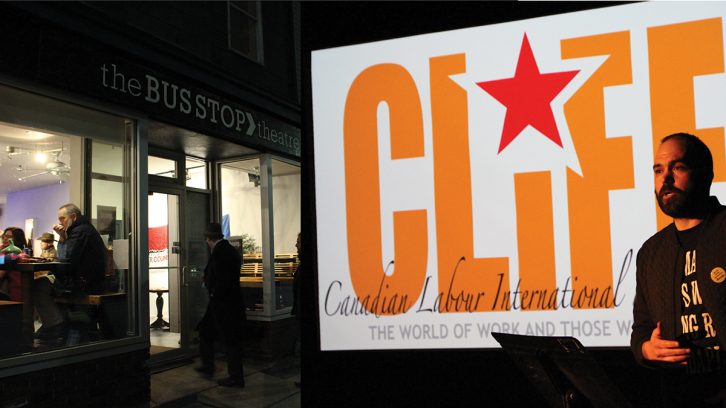Arts
9 short films speak up for labour justice
Workers' issues converge in this diverse selection of short films

caption
A selection of nine short films that engage with work-related issues were presented at the The Bus Stop Theatre Co-op. Illustration made by Sofia Ortega.
caption
A selection of nine short films that engage with work related issues were presented at the The Bus Stop Theatre Co-op. (Illustration made by Sofia Ortega).Between the ongoing situation between the teachers and the province, and a year-long strike at the Chronicle Herald, it’s been a rough year for workers’ rights in Nova Scotia. So says Sebastien Labelle, the Director of Mayworks Festival of Working People and the Arts, Halifax.
“We’re kind of in a storm of fights with social justice right now,” he said.
Labelle was speaking at the Canadian Labour International Film Festival screening on Monday night, where Mayworks Festival of Working People and the Arts, Halifax and the Bus Stop Theatre Co-op presented a selection of nine short films.
Labelle said he hoped the film festival will foster a spirit of solidarity among people and that they could “really come together and fight as sisters and brothers, and come together for a better future.”
During the event, a series of collectible social trading cards was also launched. These cards aim to educate people about Nova Scotia’s past struggles.
A variety of visual flavours from seven countries filled the room with documentaries, fiction, animation and more. Each of the nine short films presented focused on workers or work-related issues.
One of the films, a documentary titled A Living Wage, showed how two Boston fast food workers organized a major social movement to demand a $15 per hour minimum wage.
The closing film of the night was They Call Us Maids: The Domestic Workers’ Story. The animated film portrayed modern slavery by telling the story of four women who leave their countries to work as domestic workers abroad — motivated by the need to support their families.
Shelley Fashan, a community activist, was in the audience. For her, these kind of events are “a way to experience stories from other cultures, and tell us we must, as labour unionists, continue the work of equality and human rights locally, nationally and internationally.” She said there is “so much more to be done.”
[idealimageslider id=”23440″]

